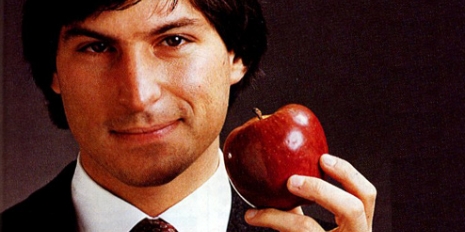
The Book: Steve Jobs – By Walter Isaacson. Isaacson is an acclaimed biographer (Einstein, Franklin etc) and was able to get unfettered access to Jobs and close associates without editorial intervention from Jobs (lucky guy!). The result is an intersection of Jobs life, convictions and foibles.
An overiding impression (aside from those about jobs) is that the author was working hard to dispel the hagiographic image that Jobs has in the general public and media. Perhaps a little too hard.
The start of the book meanders through his early years at the pace of a V-Dub van going up the kaimai’s in third. It starts to get interesting when the applied history of silicone valley is interwoven with this story. It is always fascinating how people are of a moment in time, and are a part of the fabric of history, Jobs would be a true example of this in many different facets throughout his life.
I found myself racing after a few chapters as things moved into gear with the creation of the original mac, his rejection and then redemption and ultimate salvation. As a lover of the dumbledores pheonix, and as an irrational cheerer of the losing sports teams it is fist pumping stuff when he check mates his former foes, without a shred of an apology, rather a simple raised middle finger (figuratively).
I became acquainted with the not so well known B-side (if is possible to call it that) to Jobs career with Pixar whilst watching the extras on a limited edition of Toy Story 2, which outlined a documentary history. I was so impressed with the story I bought it into the studio for the team to watch a brilliant story about a bunch of brilliant creative people (such as John Lasseter). This story expands on this with a more Jobs oriented look at the Pixar creation myth, but I carried the brilliant documentary with me, so was able to read between the notes and ideas and expand on them in my own mind.
In reality this really should have been a business book, like the ‘Apple University’ the book mentions, which documents and studies key decision points in apples history so staff can learn. I was most captivated by the deal making, blow by blow strategy of what underpinned apple and pixar’s success (and failures).
Jobs remains unequalled as a strategist and executioner, unafraid to make the big calls, and to take the resulting consequences, albeit with a grimace or a F You D&&^less Aholes thrown into the mix. Which to be honest, gives added theatre, and will, I am sure, provide gravitas when this is made into the inevitable big budget movie.
He is an absolute contravention of corporate culture, and convention. His paradoxical nature in high definition contrast in this book. It is hard to reconcile the 30 years of Zen study, with a daytime spent telling people that they are F$#king Sh#$.
There are numerous lessons in how to be a real leader, to create an ‘A’ team, how to make big decision, how to be strategic that it will surely be a goldmine for business people and aspiring entrepreneurs alike.
One thing which comes through strongly, is that Jobs was able to attract and retain people with huge potential. If you deconstruct all the key moments they all come back to critical advice Jobs received from others that either changed his perspective or direction. Isaacson does a brilliant job of providing those peoples input into these moments which is illuminating.
Again this notion of relying on others for key advice and decision, a stark contrast to the idea of a domineering individual.
It is also ultimately great to listen to someone who really cares about what they do, so strongly it is life changing. It is also nice to hear that he cared about creating a durable company that was capable of being the best. He provided the best succession plan available, by creating an A team, rather than talking jive around a walnut table. The prevailing attitude in New Zealand is to make’n’flick where no lasting value or culture is created, and quick financial wins are rewarded with kudos.
In short, a book can be judged by its ‘Crack Through’ Factor, and this has it, if you can make it through the apricot orchards and hashish haze at the start. I would have to recommend this book as a fascinating portrayal of a complex and magical person.
Addendum:
At one point I thought I was going a little loco, but it is great to know that I was not the only person who noticed the never ending crying references http://arstechnica.com/apple/reviews/2011/11/why-steve-jobs-cried.ars. Often it appeared as Cheng notes, tacked on the end of a sentence without a reason why.

Comments
Tim, I enjoyed reading your
Post new comment